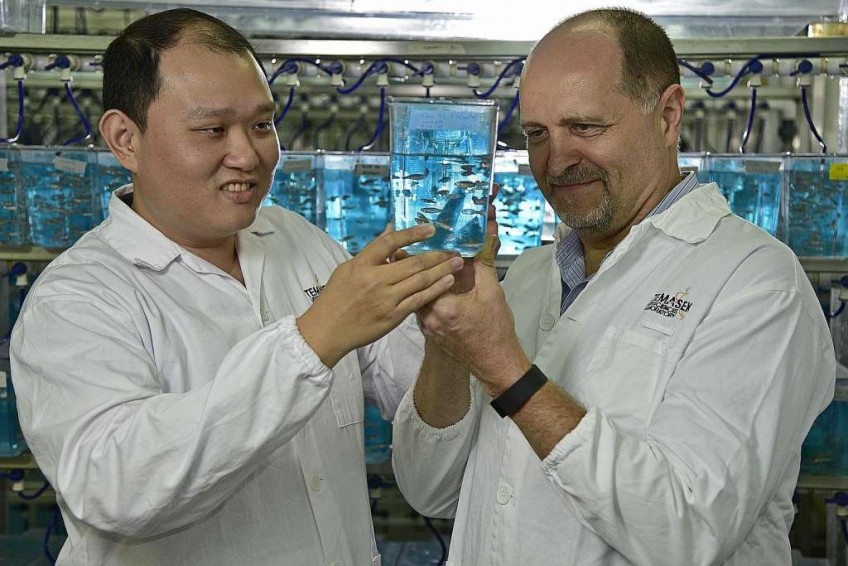In January 2017, Temasek Life Sciences Laboratory (TLL), a non-profit philanthropic organisation part of Temasek Foundation Innovates, made an interesting discovery regarding how heat influences the genetic regulation of sexual development in fish. The
findings provide insights into the interplay between genetic and environmental control of sex in zebrafish and indicate potential effects of global warming on natural fish populations and potentially other vertebrates.
The TLL team, led by Professor László Orbán, conducted these studies in collaboration with the team Institute of Marine Sciences, in Barcelona. Their findings were published in the Proceedings of the National Academy of Sciences of the United
States of America. Using the zebrafish model, the researchers found that exposing juveniles to elevated temperature can alter their sex, resulting in a disproportionate number of males, since the heat treatment forces some of the genetic females to
transform into males. Data from several families of zebrafish showed that the degree of masculinisation as a response to elevated temperature is family-dependent. Among the heat-exposed zebrafish, the scientists found individuals with female anatomy
and ovary, but a testis-like gene expression profile. This showed the possibility of major reprogramming of gene expression while still maintaining the organ structure.
Evaluating the effects of temperature on sexual development is important for understanding the potential impact of environmental factors such as climate change on vertebrate reproduction. Fish account for over half of the living vertebrate species
and are well known for having a very plastic sexual development and exhibiting various forms of hermaphroditism. Another example is the Asian seabass, a tropical food fish cultured throughout the Asia-Pacific region, which is a protandrous hermaphrodite,
or an organism that born male and at some point in its lifespan changes sex to female.
The regulation of this natural sex reversal is unknown but could also involve thermal effects. Prof Orbán’s team hopes to leverage on these findings to perform a detailed analysis of this process in seabass.
FIND OUT MORE…
About Temasek Life Sciences Laboratory (TLL)
Established in 2002, TLL is a beneficiary of the Temasek Foundation Innovates, a non-profit philanthropic organisation funded by Temasek Trust. It is affiliated with the National University of Singapore and Nanyang Technological University. The
research institute focuses primarily on understanding the cellular mechanisms that underlie the development and physiology of plants, fungi and animals. Such research provides new understanding of how organisms function, and also provides foundation
for biotechnology innovation. For more information, please visit www.tll.org.sg.
About the Institute of Marine Sciences (ICM)
The ICM, established in 1951 and located in Barcelona, is the largest marine research institute in Spain and one of the most important in the Mediterranean region of Europe. It belongs to the Spanish National Research Council (CSIC) and is entirely
devoted to various aspects of the study of the oceans. With more than 200 specialists in different fields, it provides a broad vision of aquatic life and the marine ecosystem at different scales. The major focus of its research is on the assessment
of changes and human impacts on the environment. For more information, please visit: www.icm.csic.es.
Did you know…
According to the World Wildlife Fund, the marine environment is already registering the impacts of climate change. The current increase in global temperature of 0.7°C since pre-industrial times is disrupting life in the oceans, from the tropics
to the poles.
Marine species affected by climate change include plankton – which forms the basis of marine food chains – corals, fish, polar bears, walruses, seals, sea lions, penguins, and seabirds. The Intergovernmental Panel on Climate Change predicts a
further rise of between 1.4°C and 5.8°C by the end of the century. Climate change could therefore well be the knock-out punch for many species which are already under stress from overfishing and habitat loss.
IMPACT HUB
Heating Things up
28 Apr 2017



